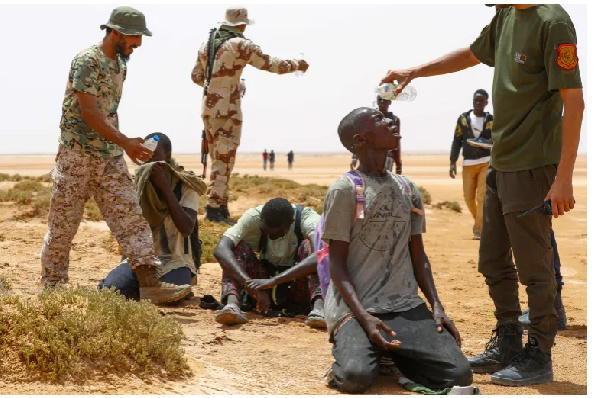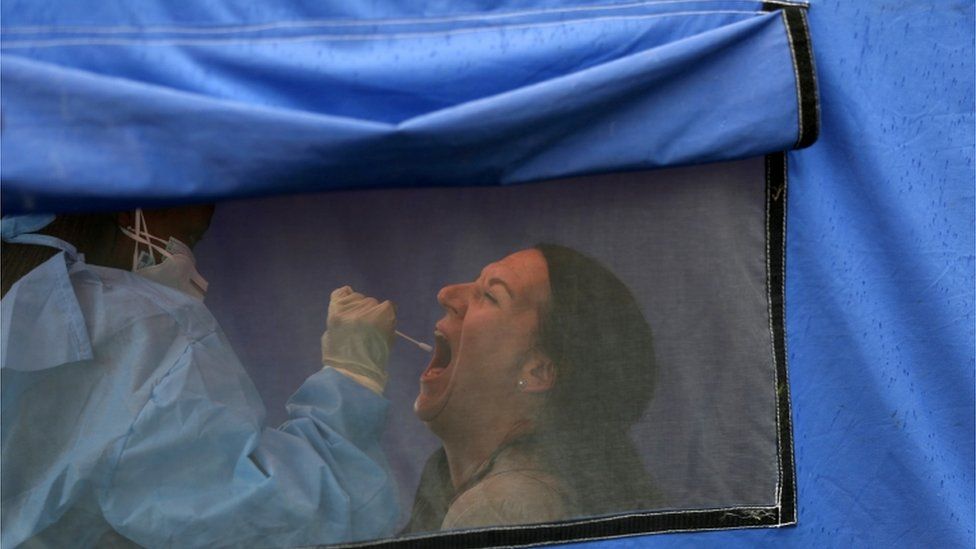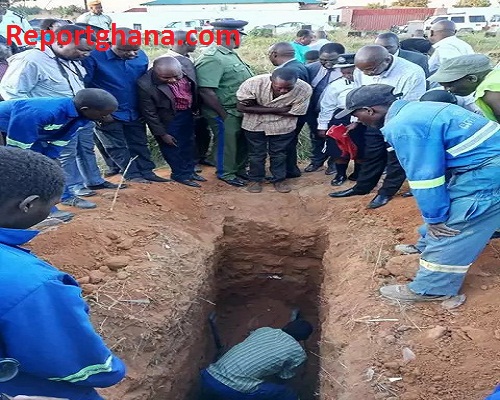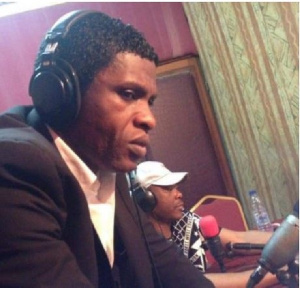At least 27 people found dead in desert after expulsion from Tunisia: Libya

Libyan border guards found the bodies “in the desert [in] a vast area to the south of the northern crossing”, Al Jazeera’s Malik Traina, reporting from the Libyan city of Misrata, said on Wednesday.
“It’s extremely hot with temperatures over 40 degrees [Celsius, 104 degrees Fahrenheit],” Traina said, adding that refugees and migrants said they had been forced to walk for days without water, food or shelter.
Libyan border guards and rights groups accuse Tunisia of expelling refugees and migrants across the frontier into a featureless wilderness far from towns or villages in the height of summer as part of a crackdown that Human Rights Watch said amounted to “collective expulsions“.
Tunisia began expelling Black African migrants and asylum seekers in July after days of violence in the port city of Sfax in which one Tunisian was killed.
Locals have complained about the refugees’ behaviour while the refugees said they have been subjected to racist attacks.
Libyan border guards said an average of 150 people a day cross into Libya after being expelled from Tunisia.
Tafaul Omar said she was taken to the border area with her husband and left there with little water while pregnant.
“My husband is a labourer. He was beaten and insulted [in Tunisia],” Omar told Al Jazeera. “Two days later, we were taken to the border. They beat the men and left us.”
She walked for hours under the scorching sun before being found by Libyan authorities.
Al Jazeera could not independently verify her account.
Ali Wali, a Libyan border guard, told Al Jazeera that it was often difficult to locate people. “It’s a wide desert and groups of migrants walk in all directions,” he said.
Tunisia’s Ministry of the Interior denies dumping refugees and migrants in the desert. President Kais Saied has described the reports as misinformation aimed at discrediting the country.
“Tunisia rejects all accusations of expelling African immigrants,” Interior Ministry spokesperson Faker Bouzgaya told the Reuters news agency this week.
Asked how those stranded in the desert had arrived there, he said: “People who meet the conditions for legal entry into Tunisia will be allowed in,” adding without elaborating, “Tunisia is not responsible for what happens outside its borders.”
Last month, the International Organization for Migration and the Office of the United Nations High Commissioner for Refugees said they were deeply concerned for the safety of hundreds of migrants and refugees in Tunisia who had been removed to “remote and desolate” border areas or pushed across the frontier.
Thousands of migrants who had been living in Tunisia have tried to leave for Europe this year after Saied announced a crackdown on them in February, saying their presence was part of a plot to change Tunisia’s demographic makeup.
WATCH Our latest Episode with Kennedy Agyapong in South Africa below:
Source: aljazeera.com





